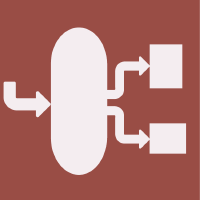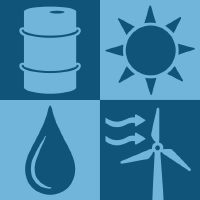Topic Editors



Innovative and Critical Issues in Natural Resource Management and Exploitation
Topic Information
Dear Colleagues,
In view of climate change occurring, caring for the environment, ensuring a well-functioning society, and the consideration of sustainable natural resource management and exploration seem very relevant and interesting from a scientific and practical point of view. On the one hand, the ways natural resources are extracted and the extent to which they are used are largely linked to greenhouse gas emissions.
On the other hand, how we dispose of the resulting waste, segregation, and recycling allows more of it to be absorbed by soils, forests, and oceans. The Topic 'Innovative and Critical Issues in Natural Resource Management and Exploitation' invites submissions of research and review articles that address both the technical and social aspects of the perception of the issue of natural resource extraction and use. The keywords listed suggest only a few of the many possibilities.
Prof. Dr. Józef Ober
Dr. Piotr Sakiewicz
Prof. Dr. Krzysztof Piotrowski
Topic Editors
Keywords
- natural resources
- innovation
- environmental protection
- ecology
- emissions
- sustainability
- quality of life
- social participation
- recycling
- waste
Participating Journals
| Journal Name | Impact Factor | CiteScore | Launched Year | First Decision (median) | APC | |
|---|---|---|---|---|---|---|

Energies
|
3.2 | 5.5 | 2008 | 16.1 Days | CHF 2600 | Submit |

Environments
|
3.7 | 5.9 | 2014 | 23.7 Days | CHF 1800 | Submit |

Land
|
3.9 | 3.7 | 2012 | 14.8 Days | CHF 2600 | Submit |

Processes
|
3.5 | 4.7 | 2013 | 13.7 Days | CHF 2400 | Submit |

Resources
|
3.3 | 7.7 | 2012 | 23.8 Days | CHF 1600 | Submit |

Earth
|
- | 1.6 | 2020 | 17.6 Days | CHF 1200 | Submit |

MDPI Topics is cooperating with Preprints.org and has built a direct connection between MDPI journals and Preprints.org. Authors are encouraged to enjoy the benefits by posting a preprint at Preprints.org prior to publication:
- Immediately share your ideas ahead of publication and establish your research priority;
- Protect your idea from being stolen with this time-stamped preprint article;
- Enhance the exposure and impact of your research;
- Receive feedback from your peers in advance;
- Have it indexed in Web of Science (Preprint Citation Index), Google Scholar, Crossref, SHARE, PrePubMed, Scilit and Europe PMC.

